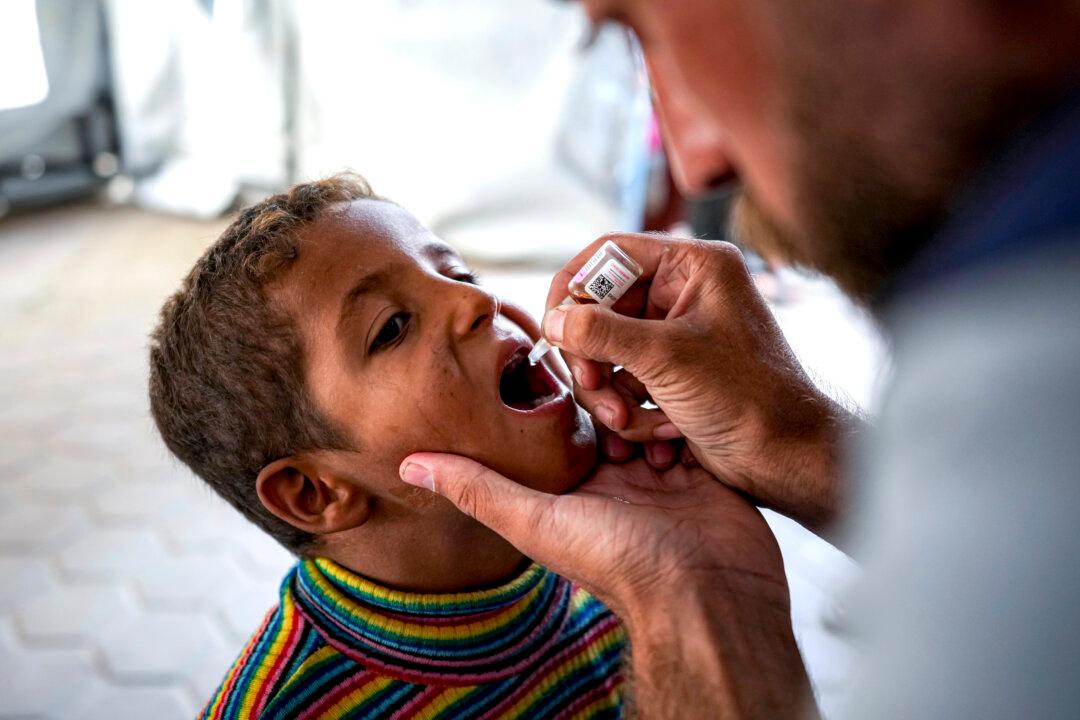The United Nations’ World Health Organization (WHO) has formally begun a campaign to mass-vaccinate Palestinian children against polio after the disease reemerged in the war-torn Gaza Strip.
Recently, Gaza reported its first polio case in a quarter century: A 10-month-old boy’s leg was paralyzed by the viral disease.





